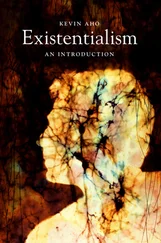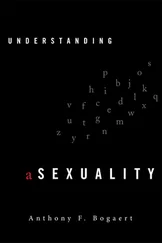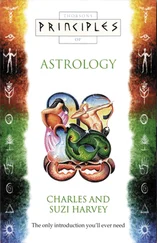Okay, so they’re only sexually attracted to people that they love?
Not necessarily. The close emotional bond does not have to be love. It could be friendship, it could be a work relationship, or any number of other strong emotional connections. Something purely platonic might still be capable of triggering sexual attraction.
How long does it take a demisexual to develop sexual attraction after forming the emotional bond?
Every situation is different. Many demis say that it can take anywhere from months to years to come about. Maybe less time, maybe more. It’s not like there’s an hourglass that’s turned the moment you meet someone, and if you don’t feel sexually attracted to them by the time the sand runs out, you’re not going to.
Are gray-a’s just asexuals who have sex?
It’s not about what someone does, it’s about what they feel. If an asexual has sex, they’re an asexual who has sex, not a gray-asexual. If an asexual masturbates, they’re an asexual who masturbates, not a gray-asexual. The difference between “asexual” and “gray-asexual” is one of attraction, not behavior.
It’s not about enjoying sex, either. If an asexual likes sex, they’re an asexual who likes sex, not a gray-asexual. It’s possible to enjoy sex and sexual activities and not experience sexual attraction.
How can someone be “Gray”? You’re either asexual or you’re not. Clear as that.
Is it clear where you fit if you’ve only felt sexual attraction once in your entire life, then never again? Is it clear where you fit if you occasionally feel something that could potentially be sexual attraction, but it’s so weak that a passing breeze is enough to make it stop? Is it clear where you fit if you’re sometimes sexually attracted to people and you like sex, but don’t feel any drive to seek it out and would be fine without it? Is it clear where you fit if you’re not sure what sexual attraction even is, let alone whether or not you’ve felt it? Gray-asexuals live in this land of confusion.
So what is gray-asexuality, then? The description you’re giving is a bit fuzzy.
The definition of “gray-asexual” is intentionally vague. It’s meant to be a catch-all for anyone who feels they fall somewhere near asexual on the spectrum between “sexual” and “asexual”. There’s no strict criteria for what makes someone “gray”, there’s no shining dividing line. If there were, it wouldn’t be a gray area.
It’s a bit like the purple spectrum between red and blue. When you’re close to red or blue, the color can be described as “reddish” or “bluish”. There’s no clear line where being “reddish” stops, but it’s clear that it stops somewhere. I mean, you can’t be one tick away from blue and still describe the color as “reddish”. Gray-asexuality is sort of like “asexual-ish”.
Do demisexuals and gray-asexuals fall in love?
Like asexuals, graces and demis come in all flavors of romantic orientation. Someone can be a heteroromantic demisexual or a panromantic gray-asexual. For a demisexual person, a romantic relationship could potentially be the catalyst for sexual attraction, however, it won’t necessarily happen just because someone’s in love.
Gray-asexuals and demisexuals can be even aromantic and not be romantically attracted to anyone. Additionally, a person can be demiromantic or gray-romantic, which are similar to being demisexual or gray-asexual, but around romantic attraction, rather than sexual.
How can you know you’re demi or gray and not asexual?
Well, if you sometimes experience sexual attraction, that’s a pretty good sign that you’re not asexual.
Aside from that, if you feel like you’re almost asexual, but not quite for some reason, then perhaps gray-asexual would be a better fit. If you’re asexual most of the time, but there’s that one person you’re close to who’s an exception, then maybe demisexual would work.
How can you know you’re asexual and not demi or gray?
If you don’t feel like you’re demi or gray, then you’re not. There’s no 100% surefire way to determine that just because you’ve never experienced sexual attraction before, that you won’t tomorrow. You can be fairly sure that it’s not going to happen if it’s never happened before, but it can’t be ruled out completely.
It’s a bit like a scientific theory: It can never be proven entirely, it can only be disproven. After all, everyone who has experienced sexual attraction had a first time, and they probably weren’t expecting it to happen, either.
Look at it this way: There are plenty of straight people in the world. Most of them have never been attracted to a member of the same sex. But how can they know for sure that they won’t be? How can they be certain they don’t have dormant bisexual tendencies? The common response is “Well, I just know”, but really, it’s impossible to know for sure. It’s not something that stresses out a lot of straight people, yet I see a lot of aces worried that they might really be gray or demi.
For me, I’m asexual. I don’t expect that it’ll turn out that I’m actually gray or demi, but if it does, I’m not going to push it away. If I happen to experience sexual attraction one day, then okay, I’ve learned that I’m not asexual after all. I’m not going to let this word that describes me very well right now tell me what to do in the future. You’re not permanently locked into asexuality for the rest of your life once you’ve used the word to describe yourself, so if it no longer fits, don’t try to make it fit.
Celibacy, Abstinence, Asexuality
I have a friend that hasn’t had sex in a while. Does that mean they’re asexual?
No. Not having sex makes that person celibate. It doesn’t make them asexual.
But isn’t “Asexuality” just a fancy-sounding word for “Celibacy”?
No, not at all. Celibacy and asexuality are two different concepts. Celibacy means someone doesn’t have sex. Asexuality means someone doesn’t have sexual attraction.
I still don’t see how those are any different. They both mean that person isn’t getting any.
Not necessarily. Asexuality describes an orientation, not behavior. Heterosexuals are attracted to the opposite sex, homosexuals are attracted to the same sex, and asexuals aren’t attracted to any sex. However, it’s possible for someone to have sex with someone they’re not sexually attracted to. Someone can be asexual and still have sex. It’s not like we’re going to kick them out of the club or anything.
So… What is the difference, then?
Here’s a handy-dandy cheat sheet for you:
Celibacy: Not having sex for some reason. (“ I don’t have sex because __________. ”)
Abstinence:Choosing not to have sex for some reason. (“ I don’t have sex because I choose not to. ”)
Asexuality:Not having sexual attraction. May or may not have sex. (“ Sex? What’s that? Please pass the cake. ”)
A lot of people try to explain the difference between asexuality and celibacy by saying something like “Celibacy is a choice. Asexuality is not.” I don’t agree with that characterization.
First of all, it implies that celibacy and asexuality are nearly equivalent concepts, where one is voluntary and the other is involuntary. This is not correct. Asexuality describes an orientation, not a behavior, while celibacy is only talking about behavior. Someone who is celibate is not having sex by definition, while someone who is asexual may or may not be having sex. It is possible for a person to have sex multiple times a day, yet still be asexual.
Читать дальше




![Andrew Radford - Linguistics An Introduction [Second Edition]](/books/397851/andrew-radford-linguistics-an-introduction-second-thumb.webp)







